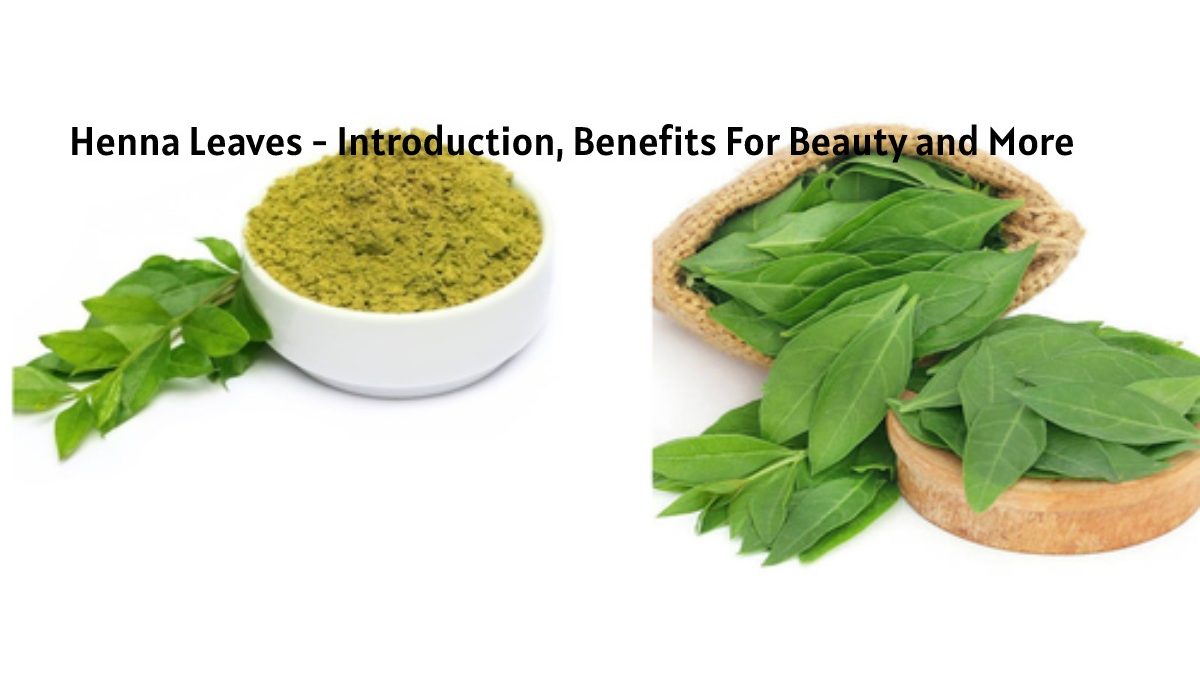Table of Contents
Introduction
Featuring beautiful henna green leaves and flowers of pink or white colour, henna has been used by different civilizations of the world and for centuries to dye hair or skin brown or red.
Henna leaves, seeds or flowers can be used for everyday cosmetic purposes, such as the dye mentioned nose, or for health and medical purposes.
The benefits of henna are hardly hidden to anyone, so what did science say about the benefits of henna? How can you use it to ensure that you get its most important benefits? answers to these questions and more:
Henna Benefits For Beauty
Henna has many incredible benefits for hair and skin, the most important of which are:
1. Promoting Hair Health
One of the benefits of henna is that it helps to improve hair health and strengthen it in general as follows:
Fight hair loss: you can mix henna leaves with mustard oil and massage hair 2-3 times a week.
Prevent dandruff: soak the ring grains for the whole night, grind the grains, mix them with mustard oil and henna, and then apply them to the scalp for 30 minutes.
Fight hair bombing: mix 2-3 tablespoons of henna powder with an egg and a little avocado oil, applying the resulting mixture to the hair for two whole hours.
Moisturize the hair deeply: mix a little henna with curd and lemon juice, then apply the resulting mixture to the hair for an hour before washing.
Increase hair smoothness: using a blend of henna leaf-drenched mixed with a mature and mashed banana, leave it on the hair just 5 minutes before washing.
2. Give Hair A Healthy Natural Dye
Henna is one of the natural alternatives to hair dye. When we say a natural alternative, henna helps give hair an excellent colour but without any risks or side effects, quite the contrary, as the hair grows more robust, more potent and stronger than the roots.
It is precisely what makes henna very useful in covering greying.
3. Strengthening Nails
One of the great benefits of henna is its ability to strengthen nails and keep them intact all the time because henna can sterilize the skin around and below nails and thus protect them from any possible bacterial infections.
4. Fight Signs Of Ageing
Although henna’s antioxidant contents are still under consideration, some experts suggest that henna oil, when applied topically to the skin, may help reduce the appearance of wrinkles and signs of ageing.
It may also help reduce the appearance of scars on the skin.
Henna Benefits For Health
Henna benefits are not only for cosmetic purposes of hair and skin, but henna has many different medical uses, and this list of the essential advantages of henna for health:
1. Relieve Head Pain
Henna helps fight headaches and various head pains when applying its juice topically to the skin.
Henna contains compounds that help relax and strengthen blood circulation and contain anti-inflammatory substances that help relieve headaches and migraines.
2. Fight Sleep Disorders
In particular, the use of henna oil may help treat sleep disorders and fight night insomnia, as henna is a relaxing substance in nature.
3. Accelerate Wound Healing
One of the essential benefits of henna health is its ability to sterilize wounds and protect them from any inflammation or contamination, so placing it on wounds makes it a factor that naturally helps speed up the healing of these wounds.
Because of the henna properties that help cool the skin and pull any heat from it, henna is particularly useful for burns, particularly sunburn, and has an effect similar to that of cactus gel in this range.
4. Reduce Fever
Henna helps cool the body instantly, making it an excellent recipe for fighting a fever and high body temperatures that can cause significant damage to the body’s internal organs if not controlled in time.
Henna helps in two ways, either by instantly cooling the skin or stimulating sweating to lower body temperature.
5. Other Benefits
Henna has many other benefits, some of which are:
Clean the body of toxins when eating drenched henna leaves.
Regulate blood pressure by eating moistened leaves of henna seeds.
Treat joint pain when applying henna topically to the joint.
Caveats And Dangers
Although henna is inherently safe and has little risk to use, be careful when considering using it, especially black henna; this type of henna may include some risks and damages, such as:
- The appearance of a rash.
- General discomfort in the body.
- Some people feel.
- Caution should be exercised before taking henna soaking or seeds, which may be unsafe, and pregnant women should avoid using them as they can lead to abortion.
Also Read: Sandalwood Mask for Skin and Hair


